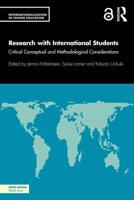Publisher's Synopsis
Wireless sensor networks (WSNs) have a broad and varied range of applications, yet all of these are limited by the resources available to the sensor nodes that make up the WSN. The most significant resource is energy; a WSN may be deployed to an inhospitable or unreachable area leaving it with a non-replenishable power source. This research examines a technique of reducing energy consumption by augmenting the nodes with radio frequency identification (RFID) tags that contain routing information. It was expected that RFID tags would reduce the network throughput, AODV routing traffic sent, and the amount of energy consumed. However, RFID tags have little effect on the network throughput or the AODV routing traffic sent. They also increase ETE delays in sparse networks as well as the amount of energy consumed in both sparse and dense networks. Furthermore, there was no statistical difference in the amount of user data throughput received. The density of the network is shown to have an effect on the variation of the data but the trends are the same for both sparse and dense networks. This counter-intuitive result is explained and conditions for such a scheme to be effective are discussed.












